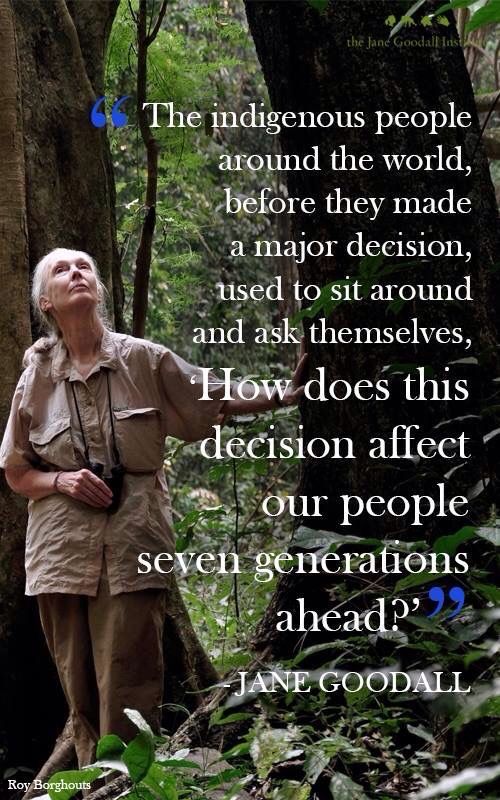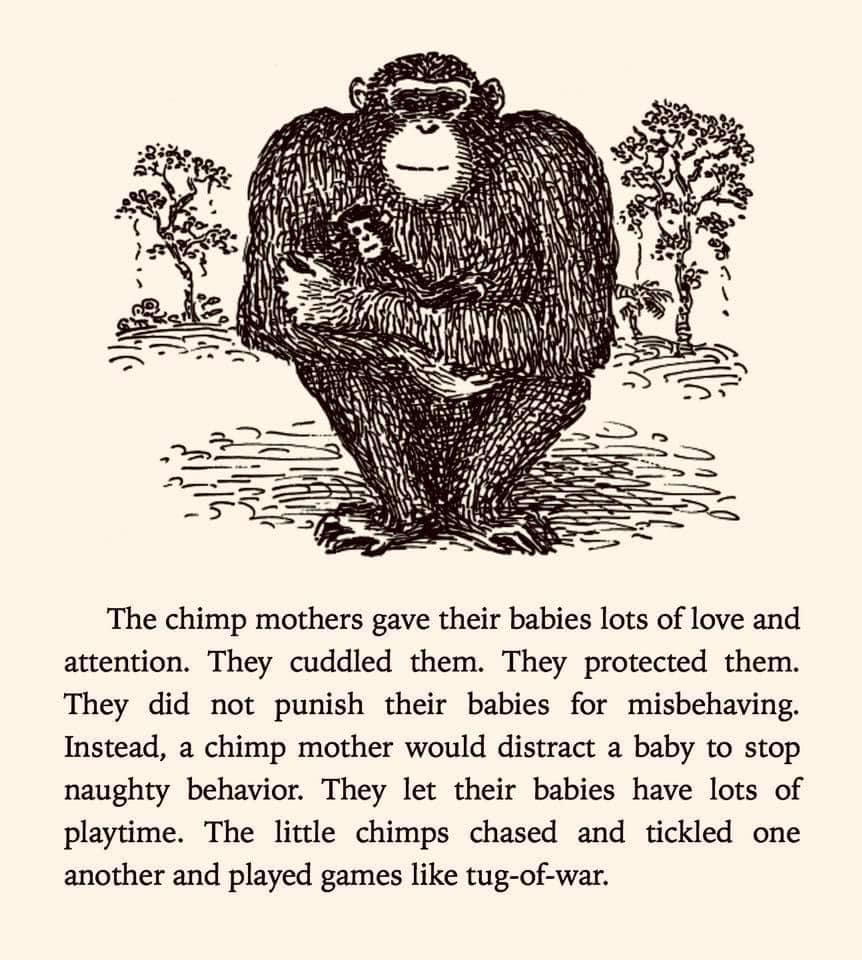Indigenous Wisdom and lessons by Jane Goodall

Indigenous wisdom encompasses the traditional knowledge and practices of indigenous cultures across the world. This knowledge is often rooted in a deep connection with the land, animals, and natural environment, as well as a spiritual understanding of the interconnectedness of all living things.
It has much to teach us about how we can live in harmony with nature and each other. For example, many indigenous cultures have developed sustainable methods of farming, hunting, and fishing that prioritize the health of ecosystems and animal populations. They have also developed ways of healing that incorporate traditional medicines and alternative therapies.
Indigenous cultures also emphasize the importance of community and collective responsibility. Many indigenous societies are organized around principles of communal ownership and sharing, rather than individual accumulation of wealth or resources. This creates a sense of interdependence among members of the community and encourages cooperation rather than competition.
Another important aspect of indigenous wisdom is spirituality. Many indigenous cultures have complex beliefs about the spiritual world and our place within it. They see all living things as interconnected and believe that our actions have consequences not only for ourselves but for the entire ecosystem.
Unfortunately, many indigenous cultures around the world have been marginalized or oppressed by colonialism, globalization, or other forces. As a result, their wisdom has often been disregarded.
Jane Goodall and her connection to Indigenous World happened through her research work with chimps
A few main lessons from Jane Goodall:
- Persistence: Jane Goodall's research on chimpanzees in Tanzania required a great deal of patience and persistence. She spent years observing the chimps, gaining their trust, and learning about their behavior.
- Empathy: Goodall emphasizes the importance of empathy in understanding animals and their behavior. By putting herself in the chimpanzees' shoes, she was able to better understand and appreciate their lives.
- Environmentalism: Goodall is an ardent environmentalist who has dedicated her life to conservation efforts. She believes that humans have a responsibility to protect the planet and its inhabitants, and that we must take action to prevent further damage to the environment.
- Education: Goodall is passionate about educating people about wildlife and the environment. She travels the world speaking to audiences of all ages, inspiring them to take action to protect our planet.
- Collaboration: Goodall emphasizes the importance of collaboration and working together to solve complex environmental problems. She has worked with scientists, conservationists, and community leaders to develop innovative solutions to environmental challenges.
- Respect cultural diversity: Goodall has worked extensively with indigenous communities around the world, recognizing their unique knowledge and perspectives on environmental issues. She believes that respecting cultural diversity is essential for building a sustainable future.
- Never give up: Goodall's advocacy work has faced many obstacles over the years, but she has never given up on her mission to protect animals and the environment. Her perseverance serves as an inspiration for all of us to keep fighting for what we believe in.
- We all have a role to play: Goodall believes that everyone can make a difference in protecting our planet and its inhabitants. Whether it's through small lifestyle changes or large-scale activism, every individual has a role to play in creating positive change. "We have the choice to use the gift of our lives to make a difference. It's up to us to decide what kind of difference we're going to make."
- Follow your passion: Goodall's life is a testament to the power of following your passions and pursuing your dreams. By doing what you love and believing in yourself, you can achieve great things and make a positive impact on the world around.
What can we learn from observing chimp mothers?

In the book "Who is Jane Goodall" by Roberta Edwards, it’s explained that chimp mothers do not punish their kids.
They have evolved to use positive reinforcement instead of punishment to teach their offspring. Chimp mothers will reward their young for good behavior with affection, grooming, and access to food. They also lead by example, demonstrating appropriate behavior for their children to emulate.
Similarly, when a young chimp misbehaves, the mother will often ignore or redirect the behavior rather than punishing the child. This approach has been found to be highly effective in chimp societies, where social bonds and cooperation are essential for survival. It also highlights the importance of empathy and emotional intelligence in animal behavior, as chimp mothers are able to understand and respond to their children's needs and emotions without resorting to punishment.
Overall, the chimp mother's approach to parenting serves as a reminder of the importance of positive reinforcement and empathy in all types of relationships, both human and animal.
Do you want to see more similar content and discuss it with others?